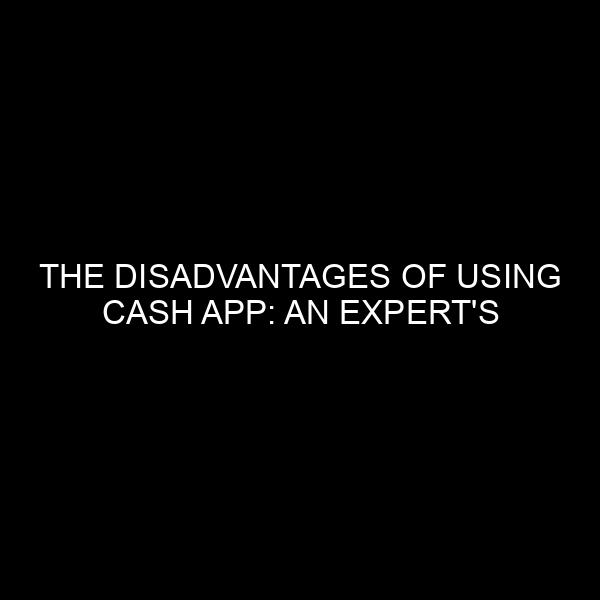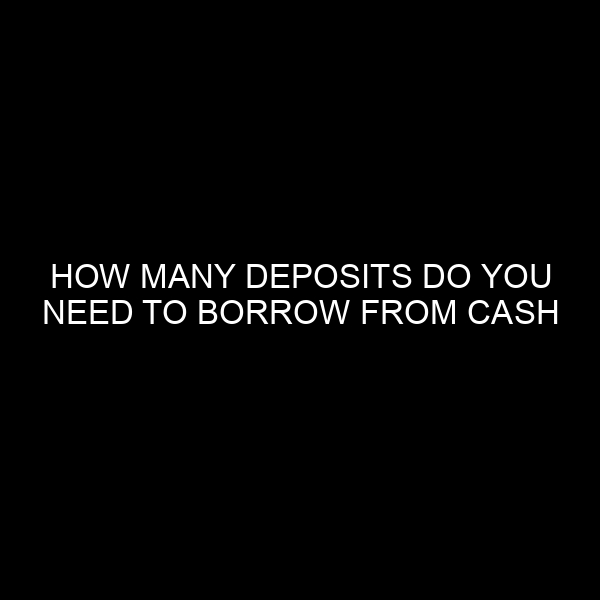What Happens If I Can’t Pay My Cash App Borrow? A Comprehensive Guide
Navigating the world of digital finance can be a minefield, especially with the plethora of apps and platforms available today. One such platform that has garnered immense popularity is Cash App. Designed as a peer-to-peer payment service, Cash App has expanded its services, including a feature known as “Cash App Borrow”. As with any financial commitment, there arise concerns on the potential ramifications of not being able to pay back. Here, we’ll delve deep into the consequences of failing to repay your Cash App borrow and tips on how to navigate such situations.
Understanding Cash App Borrow
Before jumping into the consequences, let’s take a moment to understand what Cash App Borrow is. Operated by Square Inc., Cash App allows users to borrow small sums of money, similar to a short-term loan. The intent behind this service is to assist users in handling unexpected expenses or shortfalls.
Features of Cash App Borrow:
- Short-term loans: Typically, these loans are meant to be paid back in a short time frame, often within a few weeks to a couple of months.
- Limited Borrowing Amount: Unlike traditional bank loans, the borrowing limits tend to be on the smaller side, often capped at a few hundred dollars.
- Interest Rates: Just like other loan services, Cash App charges an interest rate on the borrowed sum. The rate might vary based on various factors, including user’s credit score and borrowing history.
Consequences of Non-payment
Now, the heart of the matter. What really happens if you can’t pay back your Cash App borrow?
1. Interest Accumulation
One of the immediate consequences of not repaying on time is the accumulation of interest. This means the longer you delay your payment, the more you will owe. Depending on the terms you agreed upon, the interest could compound, leading to a significant increase in the amount owed over time.
2. Impact on Credit Score
While Cash App’s borrowing system is more lenient than traditional banks, it still has a responsibility to report borrowing behaviors to credit bureaus. This means that failing to repay your loan could negatively impact your credit score, making it harder to secure loans or credit cards in the future.
3. Additional Fees
Beyond the interest, there might be additional fees tacked on for late payments. These can further increase the amount you owe, making the debt even more daunting to clear.
4. Collections
If the debt remains unpaid for an extended period, Cash App might forward your debt to a collections agency. This process can be quite stressful, as collections agencies are known for their persistent and sometimes aggressive collection tactics.
5. Limited Access to Future Borrows
Failure to pay back might limit your ability to borrow from Cash App in the future. The platform uses your borrowing history as one of the factors to determine eligibility, so a default could jeopardize future loan opportunities.
Navigating the Situation
So, what should you do if you find yourself unable to repay your Cash App borrow?
1. Communication is Key
Before you reach the due date, it’s wise to communicate your financial challenges with Cash App. In some cases, they might offer a grace period or even a revised payment plan.
2. Prioritize Repayment
Assess your financial situation and determine which debts need to be paid first. If the interest rate on your Cash App borrow is high, it might be a wise decision to prioritize its repayment to avoid further debt accumulation.
3. Seek Financial Counseling
Sometimes, we all need a little guidance. Consulting with a financial advisor or counselor can offer strategies and solutions for handling debt more effectively.
Conclusion
While digital platforms like Cash App have made borrowing more accessible, it’s essential to approach such conveniences with caution. Remember that borrowing, whether from a traditional bank or a digital app, comes with the responsibility of repayment. Being proactive, understanding the consequences, and seeking help when needed can ensure that your financial journey remains smooth and stress-free.






